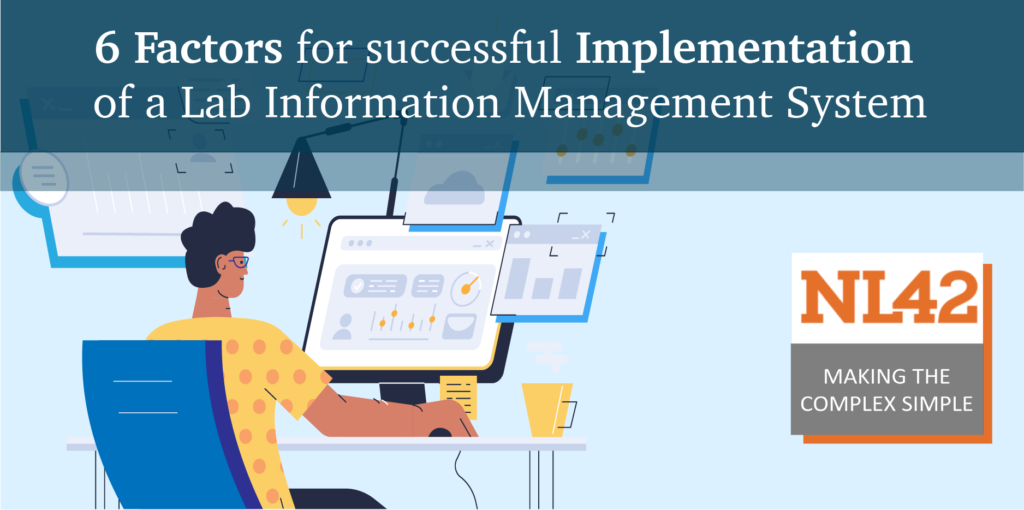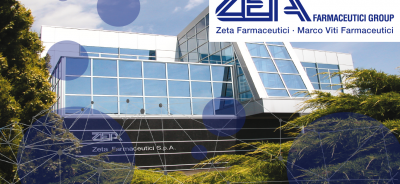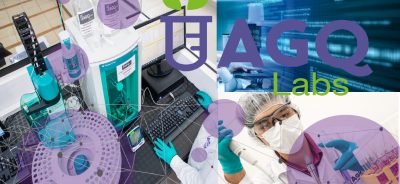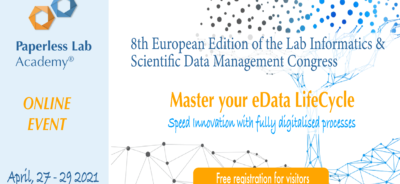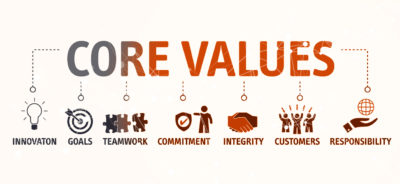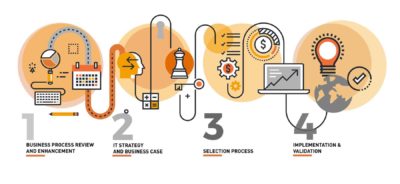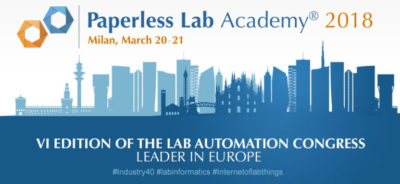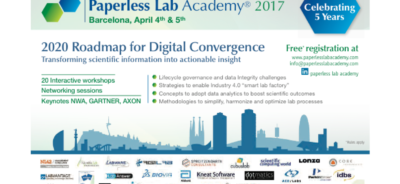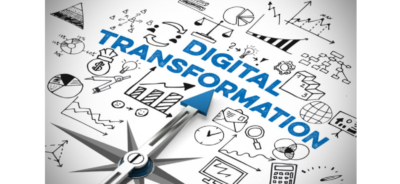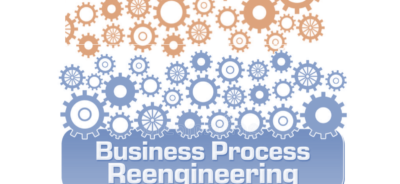6 Factors for a successful Implementation of a Laboratory Information Management System (LIMS)
Have you implemented a Laboratory Information Management Solution without really benefiting from all its capabilities?
Unfortunately, it is frequent to discover that the Laboratory Information Management Solution implemented in a site is not providing all the resources and insights that the laboratory and its stakeholders would benefit from.
Too many factors influence the success of a system implementation, irrespective of the LIMS providers, the type of lab or the size. Too often the project gets delayed. Too often phase 2 never takes off. Final users end up using very limited parts of the system, missing the full capabilities.
6 Factors for a successful Implementation of a Laboratory Information Management System
1. Use the right approach during the purchasing phase
The selection process of a software system is not just about the product but also about the company that you´re about to embrace in a long-term relationship. There are critical issues to examine prior to purchase and the vendor information should enable a quality assessment of their processes and their software’s design.
One essential starting point is the proposed Project Plan and its granularity, including the names, roles and CVs of the people involved in your project. The quality of this first deliverable will already tell you a lot.
Your company has also a critical responsibility in the initial phases: clear company, business and technical requirements will avoid misunderstanding to ensure that:
- All necessary items to complete the project are included in the offer. If something is missing while the requirements are perfectly clear should be provided at no extra cost
- Implementation phases are not meant to discover hidden costs throughout the project. Everything should be clarified upfront (i.e. additional required licences, additional services, maintenance costs)
- Instrument connection is always very much underestimated. How many instruments should be connected, when and the related costs of any type (software, services, third-party items, etc.)
- List of available documentation from the provider (i.e. IQ, OQ, release notes, technical documents, project management documents, quality manuals, etc.)
- Future updates and upgrades should be clear since the beginning: how often? is the vendor’s support required? is additional validation required?
- The preparation of a 5 years investment projection, including software, services, validation, maintenance at minimum
2. Getting the team in place
The human Factor is key for a successful digital transformation project. Ideally your project manager, enabled and supported by his/her project sponsor, should be entitled to gather knowledgeable and committed persons into the project. In the real world this is often not the case. Those people used to be completely overbooked and involved in other projects already.
Anyhow, do not overlook the change management aspect of the project and plan far in advance how you want to approach it. We warmly recommend involving the team members far in advance in the project in order to get their buy-in and hopefully convert them into evangelists
3. Breaking Down the Elephant
Pure project management statement here. Clear milestones and achievable goals in short periods of time will drive you to success.
Along with a good communication plan to your team and stakeholders, you´ll be able to show the achievement, raise concerns, drive changes when necessary, and celebrate.
4. Managing Change Requests
Any required changes will affect the project plan. There are no small changes outside the scope already agreed that won’t affect the time and cost of the project.
Changes affect also provider’s agenda that might not be able anymore to stick to the initial project plan because their resources are already assigned to other projects. You might end up queueing in their agenda and end up in an infinite loop of agenda clash between yours and theirs
5. Understanding your provider
You are the customer and as such the provider cares about you and the success of the implementation. A customer having a bad experience in implementing their system is worse than losing the deal from the reputation point of view. Your company’s name cannot be used as a reference. The risk is that the provider considers the time and cost required to recover your satisfaction is far too high to classify it as a sustainable project. The implementation project should always be a win-win collaboration.
6. Planning for the Validation far in advance
Correct documentation and execution of the Computer system validation is a key asset to demonstrate auditors the level and maturity of your quality management system. Remember that the concept of computer system validation is typically linked to only few markets. This is absolutely not the case. All customers need to check that the delivered system is fitting with the expectations. This takes place by testing the delivered functionalities, irrespective the market you operate
Most of the documentation required for the correct execution of the validation should be available when the implementation starts. Believe it or not, this will already influence your implementation success because all the information collected in these documents will form the backbone of your project, the key reference for all parties involved. Below you find a list (not complete) of documents that you should take into account during the project preparation and execution
- Project preparation
- High-level project plan and project team information
- Statement of Work
- Software Licence Agreement or Subscription Agreement
- Maintenance Services description
- Information about the Quality System of the provider
- Technical documents related to system integration and instrument connection
- Business, technical, corporate, IT and regulatory requirements at minimum
- Project implementation
- Detailed project plan
- IQ, OQ and PQ
- Validation Master Plan
- Communication Plan
- Change management Plan
- Issue management
The upgrade or replacement of a legacy will become a critical aspect of the laboratory data management in the near future. A lot of systems that have been implemented even more than 10 years ago are still operating. They are causing huge difficulties from the technical and maintenance points of view or they are simply not offering anymore the responses to the business needs. The upgrade or replacement projects might be overwhelming.
We can help here! For instance Process Review is a great opportunity to speak out and highlight the pains and the expectations during coordinated workshops. Requirements and priorities are then popping up easily for better decision making and driving of your project milestones.

